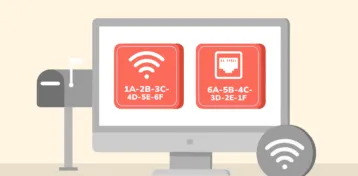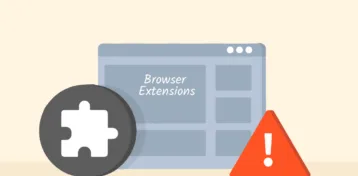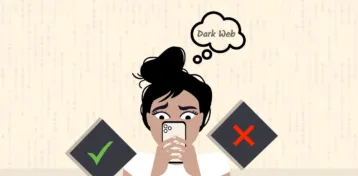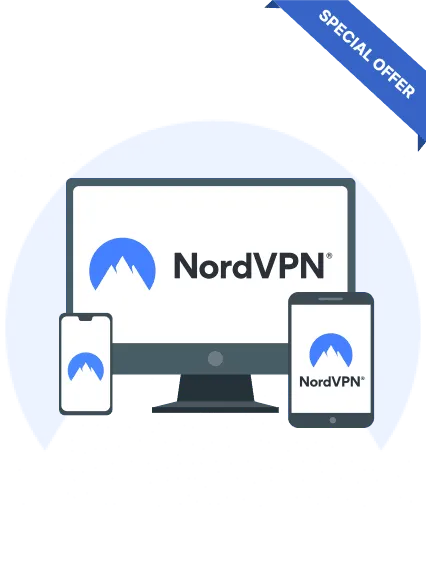Concern for internet privacy has become an ever-increasing trend as most people seek to browse the web anonymously.
Internet service providers, browsers, search engines, hackers, and governments are among the parties continually monitoring users’ online activities. Even incognito browsing fails to provide the anonymity needed when browsing online.
Several ways exist to prevent these parties from tracking your online actions while hiding your identity. Unfortunately, with 2021 being a more technological year, browsing anonymously can seem impossible under any circumstances.
Nonetheless, if you want to stay anonymous online, this guide is helpful in knowing practical ways to protect your web anonymity.
Easy ways to browse the internet anonymously – a quick look
- Use VPN to encrypt your internet traffic.
- Select an appropriate secure browser to avoid tracking.
- Use web proxy to hide your IP address.
- Switch to a secure private search engine.
- Integrate suitable add-ons to your browser to avoid web and ad trackers.
- Be wary of tracking by tech giants.
- Avoid public WiFi. Use private networks only for internet connectivity.
- Use services like BugMeNot to access private sites.
- Avoid email tracking and secure your communication by using an anonymous email account.
- Switch to anonymous payment methods like gift cards and cryptocurrencies.
- Try decentralized networking with I2P.
How you are tracked online
Understanding the methods used to track online activity can help you take steps to protect your privacy and limit the amount of data collected. The most common web tracking methods include;
- Cookies: These are small text files stored on your device. They can serve valuable purposes, such as automatic logins to your account. These are called first-party cookies. While first-party cookies can be helpful, third-party cookies can be a privacy concern as they track your activities across multiple websites for targeted advertising.
- Web beacons: These are tiny images embedded in web pages that track user activity. For example, it can monitor the pages you visited and the time you spent on each page, then use this information to suggest products or services similar to the pages you viewed.
- IP address: Your IP address is visible to all the apps and websites you visit, making it easy to track.
- Device and browser fingerprinting: WebGL leaks can reveal information about your device, which can be used to create a browser fingerprint. This fingerprint tracks your device and browser settings to reveal your identity and track your activity.
- Canvas fingerprinting: This method is enabled in standard HTML 5, and it tracks users’ activity by collecting details about their device hardware using a script.
- Account tracking: Your browser account stores personal information like bank card details, email addresses, and social media usage. So, logging out of your browser account when you’re not using it is essential to protect your anonymity.
Ways to browse the Internet anonymously

Whether you want to stream, surf, or download anonymously, there are fitting ways to keep your online experience private.
These methods prevent websites and browser plugins from tracking your IP addresses. You may also avoid geographical locations, device identification, browser, and operating system detection.
So, without any ado, here are some effective methods to stay anonymous online:
1. Use a VPN connection
Today, VPN (Virtual Private Network) has become a standard tool to safely and anonymously browse the internet. Once your device connects to a reliable VPN server, your connection becomes secure and private. In addition, the software uses unique protocols, offering encryption to all your online traffic, making your data inaccessible to individual parties.
Having a robust VPN connection also hides your IP address because the tool allows you to use an IP address from the VPN server.
Typically, IP addresses are unique numbers used to identify internet connections and reveal user location and identity. Hence, a VPN tends to hide your IP address, making those monitoring your online activities only see the VPN server’s IP address. Any website you visit will never see your IP address, hiding your location and identity.
If you need to surf or stream content, either in school or at work, anonymously, using a VPN is ideal. It helps you remain anonymous without compromising your privacy. Many top VPN providers never log your activity or the websites you visit. Hence, they guarantee private browsing through their secure VPN connections.
However, not all VPN providers promise and deliver the anonymity, security, and privacy you need. Therefore, it is crucial to consider trusted and reliable VPN providers only, essentially, the ones with a zero logs policy.
A zero logs policy ensures the VPN provider does not register your online actions and is unlikely to provide any evidence regarding your online activities.
However, it can become tricky to determine the most trustworthy provider among the many VPN services out there. So, below are some VPN services recommended after thorough testing.
ExpressVPN

This is one of the most trusted VPN providers, denoted by its many servers worldwide. In addition, ExpressVPN offers robust security options that apply to all your devices once you subscribe.
The VPN is compatible with Windows, Mac, iOS, and Android operating systems and is suitable for those who love surfing, browsing, and downloading from the internet. With ExpressVPN, you can concurrently work with up to five devices under a single subscription.
ExpressVPN is very user-friendly; installing and establishing the VPN connection takes a few clicks.
Moreover, the app will run in the background, enabling you to browse and stream as usual. Besides, you are unlikely to notice any changes though you remain safer and more anonymous. Feel free to read our in-depth review of ExpressVPN for more details about this VPN service.
NordVPN
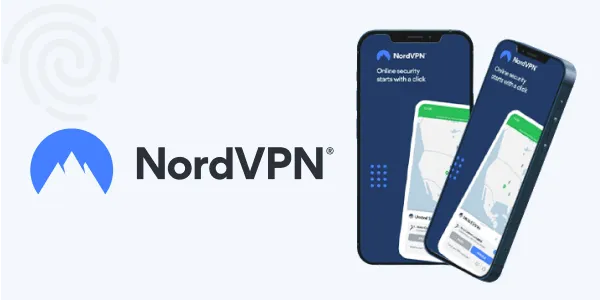
NordVPN is another quality VPN if you wish to surf anonymously online. It is an easy-to-use VPN software with numerous servers available globally. With this, you can readily choose any server that suits you best and browse the web with little difficulty.
NordVPN also helps you download torrents and even use streaming services like Netflix. More so, NordVPN boasts responsive customer support to resolve user queries.
On top of typical VPN functionality, the provider offers added security features, too.
For instance, if you need to visit an HTTPS alternative for a specific HTTP website, NordVPN will automatically redirect you to the safest version of the website. That enables you to browse the internet anonymously and safely anytime without fear.
Besides its high-quality features, another advantage of this VPN is its low-cost subscription.
You can go through our detailed NordVPN review to learn all about it.
Why I cannot use a free VPN
Alongside paid options, several free VPNs exist, allowing users to browse the internet anonymously.
However, it is always recommended to consider paid VPNs, as most free VPN providers are unreliable for private data security.
Some free VPN services may even record browsing and sell the data to third parties. So instead of a free VPN, opt for a cheap but reliable VPN provider to remain anonymous and secure online.
2. Choose the right browser
Can you be completely anonymous online? This is an issue that most people ask, but the answers lie right where they are.
Browsers are another excellent option for browsing securely and anonymously. However, different browsers accompany individual degrees of guaranteeing user privacy and safety.
It is essential to pay close attention and pick only the right browser for all your internet activities. Luckily, some secure browsers exist today to protect you online.
Below are a couple of well-known web browsers for security and privacy.
Mozilla Firefox
Mozilla Firefox stands out among the mainstream browsers regarding valuing user privacy, facilitated by its multiple security features.
The browser accompanies protection against phishing and malware, including automatically warning users if a website needs to install add-ons. Firefox also includes valuable extensions that make it very secure in protecting against tracking and privacy breaches.
Notably, Firefox is open-source, a unique product module where users can check the code making up Firefox’s software. This shows that Mozilla tries to prove its transparency while accompanying built-in add-ons solely for Firefox. Thus, the browser has done its part to provide user safety, especially when visiting any website anonymously.
Users can also make some advanced tweaks to the browser to make it even more secure. Feel free to read more about strengthening Firefox privacy and security in our detailed guide here.
Safari
Apple’s browser Safari has made critical improvements to its privacy terms lately. Introducing new features to stop digital fingerprinting and Intelligent Tracking Prevention has made it secure and private.
Removing digital fingerprints means that other parties are unlikely to track your online activities when using Safari.
On the other hand, Intelligent Tracking Prevention automatically removes first-party tracking cookies placed by websites in the browser after seven days. This approach prevents websites from tracking visitors for a prolonged period, protecting user privacy.
Safari also thrives on enabling useful extensions to improve user online privacy.
Tor Browser
With the Tor browser, users get the best experience anonymously browsing the internet.
Tor (The Onion Router) offers an encrypted and anonymous communication browser. The browser works similarly to mainstream browsers such as Firefox, Chrome, and Safari but allows users to remain anonymous when browsing.
Tor contains thousands of servers worldwide and encrypts any data traffic sent. The process involves breaking down data traffics and sending them to different servers before reaching their destinations. Thus, this encrypted browser tends to be slow, but nobody can see what you do online.
The best part is that it only encrypts what you do online by protecting what goes through the browser alone.
Moreover, Tor also allows users to access sites on the dark web. But you should proceed with caution.
Due to the risk of this unregulated part of the internet, a VPN and Firefox browser is a handy alternative.
3. Browsing with a proxy
Determining how to be completely anonymous online also involves using proxy servers to safeguard your privacy and user data.
With free proxies, you send the request information to the proxy server, which then forwards it to the website. The website only recognizes the IP address of the proxy server but not yours.
However, unlike VPN encryption, it is easy for the website to unravel your IP address and online traffic when on proxy servers. This is because proxy servers lack the level of encryption offered by VPNs. In addition, other parties will also monitor what you do through the proxy’s IP, while a VPN prevents them from knowing your identity.
Most people consider proxy servers an alternative to VPNs despite lacking advanced security features. Specifically, proxy servers only prevent particular online restrictions, and this is where they are convenient. However, consider using a VPN provider for security against traffic data and user privacy.
4. Consider changing your search engine
Specific search engines such as DuckDuckGo are great alternatives to Google, Yahoo, and Bing when browsing anonymously.
Anonymous search engines allow users to search different terms, including links, without any traces.
Standard search engines like Google often collect user data.
Contrarily, DuckDuckGo, and other privacy-focused search engines never keep any user history; even the website you visit will not recognize your search terms.
Still, the website will know you visited the page, usually registered with your IP address.
DuckDuckGo allows you to search the web more anonymously than a regular search engine.
Although, it rarely offers optimized searches due to a lack of adequate budget and human resources like Google. Nevertheless, it is recommended for those focusing on privacy. This search engine offers similar results to Google based on the search terms.
For this reason, DuckDuckGo stands out in offering truly anonymous browsing. Trying this private search engine can therefore help you keep your privacy secure.
Another great alternative to DuckDuckGo is StartPage, which is privacy-friendly and delivers accurate search results.
5. Incorporate the right browser extensions
Several browser extensions allow you to maximize online safety and privacy. In addition, these extensions are easy to install and use. Adblockers, password managers, and VPN browsing extensions are among such add-ons.
To minimize tracking, you can also find specific addons and extensions in your browser’s store. Search with phrases like “adblocker” or “anti-tracker,” and you’ll find multiple options. Ensure reading users’ reviews and comments about those addons before installing them.
Two such top browser extensions recommended for you include Privacy Badger and Ghostery.
Both of these browser extensions are tested to work for detecting and blocking third-party tracking cookies. Once you install Privacy Barger and Ghostery, you block third parties from monitoring your online activities.
6. Be cautious of big data and tech companies
Let’s face it; Facebook has continually shared users’ data with different advertisers. This is why various groups get well-tailored ads based on their interests on individual Facebook feeds.
Unfortunately, the trend has become even worse, with Facebook tracking what you do when not using this social media platform. So, for example, if you are looking for vehicle insurance, you will likely see various relevant ads on your Facebook feed.
The company allows you to change this in their privacy settings, but you will still see other ads. Thus, they will continue to spy on you and collect your information even when you turn off their tracking.
Like Facebook, Google also allows turning off add personalization, but they will continue tracking and collecting your data.
Generally, these big companies monitor their users regardless of the settings to disable such practices. But, again, using a VPN and related methods can help users fight significant data privacy concerns and browse anonymously online.
7. Use private internet connections
You will likely find open WiFi whenever you visit coffee shops, airports, hotels, and other public areas.
While such connections appear attractive, unprotected WiFi hotspots accompany countless perils.
Most malicious actors target such stations and steal personal data or compromise private information for users.
Some tend to monitor the user’s internet usage or plant malware in the connection, providing means to access your traffic data.
Consider using a VPN and other safety tools to browse safely and privately in unprotected connections. You can also consider a personal LTE hotspot or modem tethered to your device’s LTE connection via cable or Bluetooth.
Can you be completely anonymous online when using a public hotspot? We hear you ask.
The short answer is NO.
But using a tool like a VPN helps you protect your connection. A VPN tends to encrypt your connection while hiding your data from snooping eyes. Using a private internet connection hence enables you to browse the web anonymously.
8. Try BugMeNot
The internet carries a staggering amount of information which sometimes becomes hard to access. This comes in the form of some sites demanding to create an account before you access certain information. In such a case, the website requires first-time users to set a password and provide some personal information.
BugMeNot.com is an internet service that offers registered passwords to protected websites regardless of the site you need to access.
Using this site, all you need to do is enter the URL of the site you need to access and search in its database. BugMeNot will provide a particular credential that you can use to access your desired website without creating an account.
However, this site is a hit-or-miss because it may fail to provide valuable information regarding the platform you need to access.
In short, BugMeNot is a convenient service when you need to access specific anonymous websites on the web. But keep in mind that it can disappoint at times.
9. Have an anonymous Email account
When BugMeNot seems to disappoint, and it is necessary to access protected sites, you can try an anonymous email account.
Giving your email address to every other website indirectly welcomes endless junk emails, including phishing emails. Therefore, creating an anonymous email with Tor Browser or VPN is essential to set up an account without any visible connection.
Let the new email be entirely separate from your personal or business email account.
Gmail and Outlook will likely ask for identification, so we recommend using email providers such as TorGuard Email and Mailinator. They work the same but with a different domain address.
Mailinator
Mailinator is a free disposable email address you can create without visiting the provider’s site. When accessing protected sites, you can quickly make up an email by inserting any username and including the Mailinator server address at the end. The email address will become active, and you can access protected sites.
Since Mailinator has no signups or passwords, it can become problematic when multiple users choose the same username. This means you can see the other user’s emails and vice versa.
TorGuard Mail
TorGuard is a VPN provider that also prides itself on providing anonymous emails.
TorGuard’s anonymous email service, PrivateMail.com, has become an excellent solution for users seeking full-featured and less temporary emails, unlike Mailinator. When you register, the email includes a 10MB offshore storage account and a paid monthly or yearly plan.
Users get an option of choosing a unique username and either one of its five email domains. It also has secure payment methods like Bitcoin and PayPal to keep user data private. In addition, the email service offers self-destructing emails and OpenPGP encryption, among other features.
SEE ALSO: Best secure email providers
10. Use anonymous digital currency for payments
Users often make online payments when purchasing products such as antiviruses and VPNs. However, making payments via bank transfer or credit card compromises your privacy, leaving a digital trail leading to your location.
Even if you pay for a safety tool such as a VPN, using anonymous digital currency is crucial.
Moreover, given the ever-rising digital threats, using standard payment methods is not safe because they are linked to your personal email address, phone number, or even business address.
Bitcoins, Gift Cards, and other digital payment methods help make your payments private. Here it’s worth noting that Bitcoin payments remain untraceable to a greater extent, while gift cards are great if you have trust issues with digital currency.
11. Use I2P
Invisible Internet Project, called I2P, is an anonymous, decentralized network allowing users and applications to browse anonymously.
The software enables users to send a message as a group but through different nodes. Though it offers the anonymity you need, the network uses an elaborate tunnel that works best with the Tor Browser.
The prime benefit of I2P is that it applies to all activities other than traditional VPNs, as it uses different nodes and tunnels and sends multiple packets. It is also compatible with most programs, such as torrents, games, browsers, and other P2P tools.
Despite not being as popular as Tor and other VPN providers, this tool has many users.
Is anonymous browsing the same as private browsing?
Many internet users confuse private browsing with anonymous browsing, given the word “private” here. But, sadly, there’s nothing precisely “private” in the former, hence becoming different from anonymous browsing.
If you’re one of those who keep deleting their browser history, private browsing mode comes in handy. However, for true online anonymity, you have to take more steps.
Basically, private browsing is all about maintaining your privacy at the device level. With this browsing mode, your web browser does not save your browsing history, that is, the websites you visit. Nor does it keep any cookies.
However, it doesn’t protect you from online trackers who might trace you via various other means. Also, it can’t protect you from malware, the more robust trackers, phishing threats, and tracking by Google (or the search engine you use). Besides, anything you download during private browsing also stays on your device.
In short, it’s just an easy workaround to remove your web browser history. But, evidently, this is not what online anonymity is all about.
For an anonymous online experience, you must follow the tips shared above and use the private browsing mode to hide from online tracking entities.
Is it possible to be truly anonymous online?
Unfortunately, achieving 100% anonymity isn’t currently possible, regardless of how cautious you remain.
Although, you can attain anonymity to a greater extent by following the methods shared above. However, as long as you use the internet, you remain traceable.
Then what’s the use of this whole discussion? We hear you ask.
Well, what makes 100% online anonymity a dream (for now) is that you must keep sharing your details online in one way or another.
For example, when subscribing to a VPN, you share your personal details with them, such as your name, email address, and billing address. Likewise, signing up for an email service provider or a social media account requires sharing personal information.
Theoretically, you can do the following to browse the internet anonymously.
- Avoid ISP tracking by using an internet hotspot instead. To avoid sharing your billing details, you can buy it via a trusted acquaintance.
- Use Tor to browse the internet anonymously.
- Get a secure email account through an encrypted email service. Here again, you can put up fake information about yourself.
- Subscribe to a VPN. You can use your secure email account for registration and anonymous payment methods like gift cards or cryptocurrency.
Now you have seemingly secured your internet traffic. Also, you have avoided sharing your personal data to a great extent.
However, despite applying these seemingly impossible tactics, you can’t be sure of 100% anonymity because of various other web tracking strategies that may continue to work.
But that’s not what you really need. Until you don’t do anything illegal, you are pretty safe by following the practices described above.
These methods effectively end off the most annoying trackers, cybercriminals, and other surveillance authorities.
More ways to ensure anonymity online
You can find additional tips and suggestions below to achieve maximum anonymity while browsing online.
Check your level of anonymity
To maintain online anonymity, it’s essential to know what data is exposed when visiting the web. Tools like browser leak test and proxy6 can help you understand what information is visible to websites and apps and how to check for the IP address, time zone, location, and ISP information leakage.
Additionally, a dark web monitoring service and checking sites like Have I Been Pwnd can help you know if personal information such as phone number or phone has been compromised from data breaches.
Use a random MAC address
A MAC address is a unique code used to identify devices on a network; routers use it to direct information to the correct device. However, because it’s unique, it can be used to trace a device’s online activity and make it vulnerable to man-in-the-middle attacks.
Additionally, you can change your MAC address or use a VPN to protect your device and privacy. On Windows, you can change your MAC address by going to the settings, navigating to Network and Internet, then WiFi. There should be an option to set a random MAC address here.
Prevent WebGL fingerprinting
WebGL is a technology that allows web browsers to render 3D graphics directly using the device’s graphics card, eliminating the need for additional plugins or extensions.
WebGL can reveal information about a user’s device, such as the graphics card model and operating system, which can be used for targeted advertising. It is essential to prevent WebGL leaks to protect privacy.
Opt out of targeted ads
Furthermore, you can use the Network Advertising Initiative’s (NAI) opt-out tool to prevent companies from collecting and monetizing your data. This tool allows you to see the websites that use outputs from your browser for internet-based advertising and opt out of targeted advertising on devices.
Stop WebRTC leaks
WebRTC technology allows for audio-visual and peer-to-peer communication from your browser, making it essential for browser-based voice and video calls. However, it may also expose your actual IP address. This issue can occur even when using a virtual private network. Premium VPN services can help you prevent WebRTC leaks so you can make calls without compromising your privacy.
Conclusion
Indeed, different ways exist today to help you browse the internet anonymously. Some of these methods seem more effective than others, but all these forms are helpful when used correctly. If you need to avoid the prying eyes of scammers, government agents, or other malicious actors, the tips mentioned above will help.
Combining ideal tools while using the most appropriate ones is recommended to maximize internet anonymity. First, begin with your browser, followed by its extensions, VPNs, and other steps that keep you anonymous throughout your internet surfing experience.
FAQs
While total anonymity on the internet is challenging, the following steps can help reduce tracking:
1. Utilize a VPN to encrypt your internet activity.
2. Use an anonymous search engine to browse the internet.
3. Select a browser that prioritizes privacy that doesn’t collect data or retain cookies.
Firstly, you have to download and install reliable VPN software and then connect to a server of your choice. Your internet connection is secured through encryption and routing through the VPN server. This protects your online traffic from third parties and hides your IP address.
You can find many options out there that are reliable and trustworthy, but ExpressVPN is absolutely a top choice. We recommend it due to its security, speed, privacy policy, and server options. It provides secure and anonymous internet access.
The main reason for using anonymous web browsing is privacy. It can help limit the information available to employers or hide browsing habits from websites and advertisers. It can also be helpful in countries with restrictive internet policies.
Many free VPNs can be risky as they may not be secure and keep your data logs. However, if you are on a budget, you can opt for premium options, such as ProtonVPN and Windscribe.
